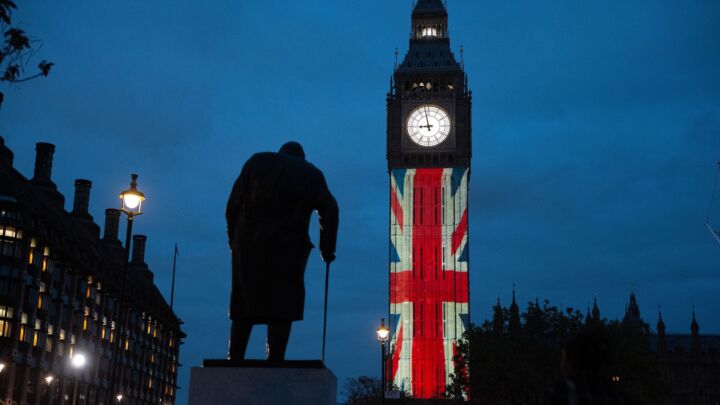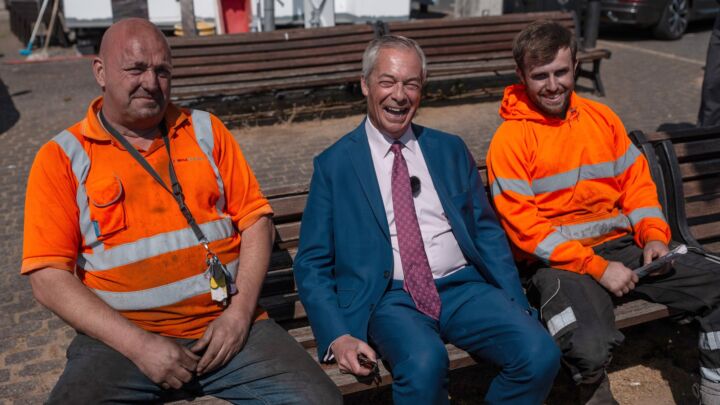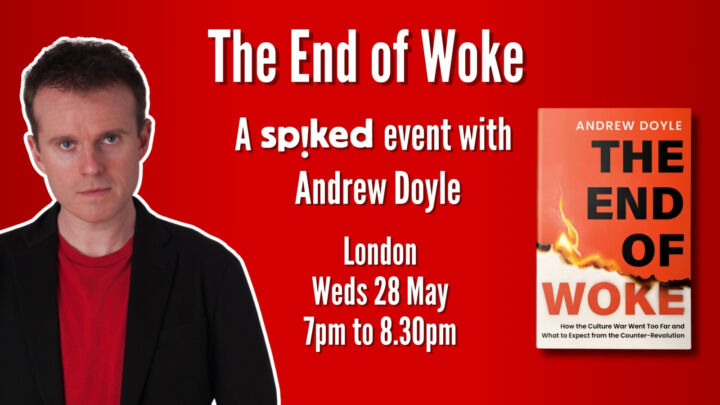Young people, stop sobbing and seize the day

Want to read spiked ad-free? Become a spiked supporter.
Something is wrong with modern Britain. According to a new survey, 58 per cent of 16- to 25-year-olds say that political events have made them fearful of the future, and 28 per cent say they don’t feel in control of their lives. Where once young people were thought of as being rebellious, full of new ideas and ready to go against the grain, now they apparently can’t even study the philosophy of a dead white male without suffering a meltdown.
This UK-wide survey for the Prince’s Trust, carried out in November by YouGov, found that political upheavals like Brexit, job worries and low self-confidence have left young people feeling anxious and daunted. They are demoralised and pessimistic, with 18 per cent believing they are unable to change their circumstances and 16 per cent saying their lives will amount to nothing, no matter how hard they try. But are things really that bad?
There’s no doubt that there are pressures on young people today, but the idea that these are new or unique to the current generation is nonsense. Young people have always had to face a new world when they leave their parental homes – when they step out into the public sphere and become active citizens. That, necessarily, comes with the added practical burdens of finding a job and a place to live. Becoming independent also provides an opportunity to decide which political party and ideology represents the way you view the world, and work out how to use those platforms to affect change.
The problem today is that there is a chronic lack of political imagination, and we are teaching young people to pathologise the problems they face. Take, as a prime example, the use of the word ‘anxious’. Anxiety has quickly become a way of pathologising what would previously have been thought of as everyday experiences. This has grown out of the perceived mental-health crisis. Dame Martina Milburn, the Prince’s Trust’s chief executive, reflected this when she said that, ‘it is vital that we support [young people] to develop the confidence and coping skills they need to succeed in life’.
But this is not the answer. The reason young people feel so desperately lacking in control, the reason they perceive the greatest opportunity in generations to reshape politics (Brexit) as a burden, is that they are completely lacking in political imagination. Today, politics is seen only as an identity parade and a virtue-signalling exercise – a way of wrapping people in cotton wool so they need not face the world.
We need to challenge the view that young people are not in control of their destinies. Young people need to rediscover their capacity to make history and shape the future. They don’t need ‘coping’ strategies, they need to organise and formulate new ways of understanding the world that aren’t founded on their own vulnerability. Then, they need to get out on to the streets and take hold of the opportunities that being an active citizen gives them.
Christopher Beckett is a writer and researcher working in the education sector. Read his blog.
Who funds spiked? You do
We are funded by you. And in this era of cancel culture and advertiser boycotts, we rely on your donations more than ever. Seventy per cent of our revenue comes from our readers’ donations – the vast majority giving just £5 per month. If you make a regular donation – of £5 a month or £50 a year – you can become a and enjoy:
–Ad-free reading
–Exclusive events
–Access to our comments section
It’s the best way to keep spiked going – and growing. Thank you!






Comments
Want to join the conversation?
Only spiked supporters and patrons, who donate regularly to us, can comment on our articles.